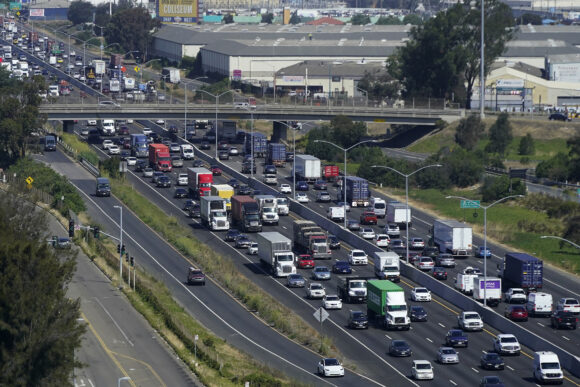Two court rulings in Southeastern states have underscored insurers’ responsibilities under uninsured motorist laws.
In a Mississippi class-action lawsuit, the U.S. 5th Circuit Court of Appeals found that Allstate Property & Casualty Insurance Co. had not violated state law by excluding coverage for the diminished value of a vehicle. The appeals court ruling upheld a lower federal court’s dismissal of the class action against Allstate.
The case stemmed from a 2021 accident in northeast Mississippi. Kimberly Jones’ insurer, Safeway Insurance, paid Kenan Watkins $24,314 for damage to his Chevrolet Tahoe. But because Jones’ policy did not cover the diminished value of Watkins’ vehicle, about $13,500, Watkins filed an uninsured motorist claim with his insurer, Allstate.
Allstate denied the claim, pointing to its policy exclusion for “any decrease in the property’s value” resulting from repair. Watkins’ attorney argued that Allstate’s exclusion violated Mississippi’s uninsured motorist statute, which, Watkins said, requires payment for injuries not fully covered by the at-fault driver’s liability policy.
But the district court and the 5th Circuit panel found that the Allstate policy meets the statutory requirement of at least $25,000 for bodily injury or death to one person.
“Furthermore, there is no legislative or judicial pronouncement that insurers must provide for payment of diminished value in all issued automotive policies,” the panel wrote in the Jan. 12 opinion.
Watkins had construed the intent of previous court rulings on that issue too narrowly, the 5th Circuit noted. The judges also agreed with the lower court that Watkins failed to show that Jones was an uninsured motorist, as defined by law. The law speaks only to bodily injury, not diminished value of a car.
“To determine whether a vehicle qualifies as uninsured, the district court explained that it ‘must compare the limits of bodily injury liability of that vehicle with the limits applicable to the injured person under his uninsured motorist coverage,'” the appeals court wrote.
Because Watkins failed to provide the limits of bodily injury liability under Jones’ policy and the limits of his uninsured motorist coverage, the district court concluded that Watkins failed to plausibly allege that Jones’ vehicle was an uninsured motor vehicle, the appellate judges said.
In North Carolina, the state Court of Appeals on Tuesday found that under that state’s underinsured motorist statute, an insurance carrier has no right to a subrogation action if it had not advanced the full liability settlement amount.
“We acknowledge the public policy concerns advanced by Farm Bureau. However, this Court is an error-correcting body, not a policy-making or law-making one,'” the court wrote in the appeal brought by North Carolina Farm Bureau Mutual Insurance.
 The appeals court upheld a Chatham County judge’s order, which found that state law is clear: An underinsured motorist insurance carrier must advance the amount of the liability carrier’s settlement, not just its own policy limits, within 30 days of an offer, or it loses all subrogation rights.
The appeals court upheld a Chatham County judge’s order, which found that state law is clear: An underinsured motorist insurance carrier must advance the amount of the liability carrier’s settlement, not just its own policy limits, within 30 days of an offer, or it loses all subrogation rights.
“Under our statute, as interpreted by the courts, if there’s a policy-limit settlement offer by the liability carrier, and the underinsured motorist carrier is given notice of that settlement offer, they have 30 days to advance the amount of that offer if they want to preserve their right to subrogation,” said David Stradley, of Raleigh, attorney for the injured passenger’s representative.
In other words, although the UIM carrier in this case, Farm Bureau, had paid its $100,000 UIM policy limit, it was still required to pay the $300,000 that Nationwide General Insurance had agreed to pay on the liability claim.
“The law has been called ‘devilishly fair.’ And it is,” Stradley said, noting that the law protects the insureds but also gives insurers more skin in the game before seeking reimbursement through subrogation.
Farm Bureau had argued that the UIM statute can be read different ways: Subrogation rights can be preserved if its own policy limit is paid, as long as the insured’s coverage limit has not been exhausted.
In the final analysis, though, the court disagreed with Farm Bureau.
“Farm Bureau’s argument is unpersuasive for several reasons. To begin, there is no ambiguity in the plain language” of the statute, the appeals court judges said.
The case began in 2016, when a car driven by Alexander Haswell was involved in an accident, injuring the unnamed minor. The Haswell family was covered by Nationwide, with a $300,000 limit per person and per accident.
The juvenile passenger was also covered by a UIM policy from Farm Bureau. At some point, Farm Bureau agreed to pay its $100,000 policy limit to the youth. In 2022, after mediation, Nationwide and the plaintiffs agreed to a $300,000 settlement. The plaintiff’s attorney notified Farm Bureau, reminding the carrier that it could now advance the settlement in order to preserve subrogation rights. Farm Bureau did not make the payment, then litigated the matter.
Stradley said it was unclear to him why Farm Bureau had pressed the appeal, since the law is clear and most insurers have followed the correct procedure for decades.
“In my 30 years of practice, this is the only time I’ve had an uninsured motorist carrier pay early like this,” Stradley said.
Farm Bureau attorneys could not be reached for comment Tuesday.
Was this article valuable?
Here are more articles you may enjoy.


 Judge Upholds $243M Verdict Against Tesla Over Fatal Autopilot Crash
Judge Upholds $243M Verdict Against Tesla Over Fatal Autopilot Crash  Red Flags Adjusters Should Look for in Truck Accident Claims Investigations
Red Flags Adjusters Should Look for in Truck Accident Claims Investigations  Building Fortification And The Role of The Insurance Industry
Building Fortification And The Role of The Insurance Industry  Stellantis Weighs Using China EV Tech for Affordable Cars
Stellantis Weighs Using China EV Tech for Affordable Cars 